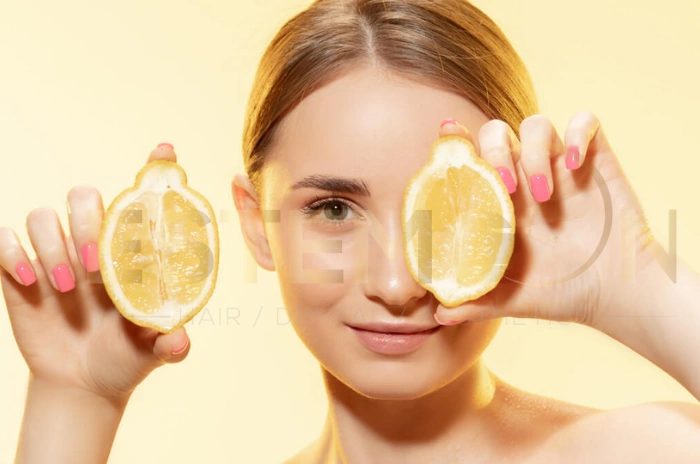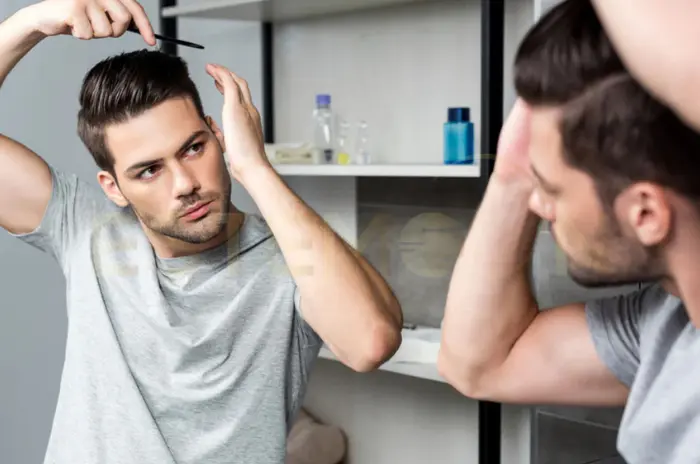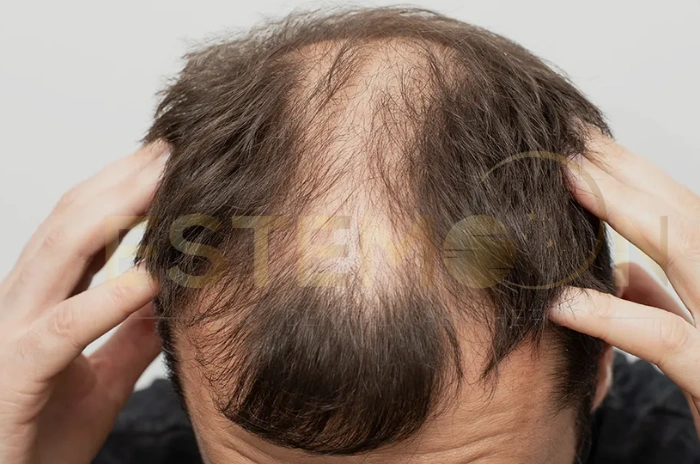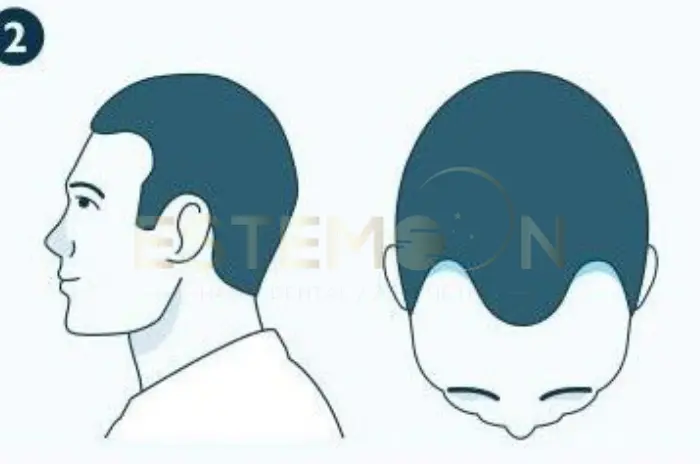Lemon juice for hair lightening has been a popular natural beauty secret for generations. This citrus-based method offers a gentler alternative to chemical bleaches, using the natural acidic properties of lemons combined with sun exposure to gradually lighten hair strands. While natural hair lightening with lemon juice requires patience and proper technique, it can create beautiful, sun-kissed highlights without the harsh chemicals found in commercial products.
The process works through the citric acid in lemon juice, which acts as a natural bleaching agent when activated by UV rays. This DIY hair lightening method is particularly effective on lighter hair colors and can create subtle to moderate lightening effects over time. Understanding the proper application, safety measures, and aftercare is essential for achieving desired results while maintaining hair health.
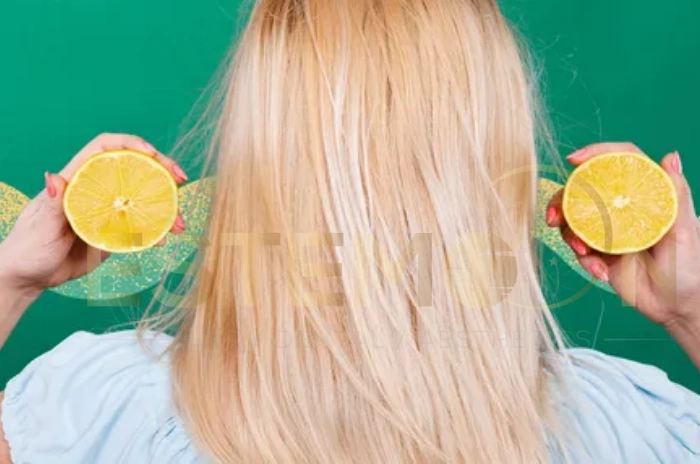
The Role of Sun Exposure in the Lightening Process
Sun exposure plays a crucial role in the lemon juice hair lightening process. The UV rays from sunlight activate the citric acid in lemon juice, creating a photochemical reaction that breaks down melanin in hair strands. This natural process mimics how hair naturally lightens in summer months, but the lemon juice accelerates and intensifies the effect.
The ideal conditions for sun lighten hair treatment include bright, direct sunlight with UV index levels between 6-10. Morning sun (10 AM to 2 PM) provides the most effective UV rays for activation. Hair should remain damp with the lemon juice mixture throughout the sun exposure period, typically 1-2 hours for optimal results.
Weather conditions significantly impact the effectiveness of this method. Cloudy days reduce UV penetration, while very hot days may cause excessive drying and potential damage. The citric acid hair lightening process requires consistent moisture and moderate heat to work effectively without causing brittleness or breakage.
Optimal Sun Exposure Timeline
Different hair types require varying exposure times for safe and effective lightening:
- Fine hair: 30-60 minutes maximum exposure
- Medium hair: 60-90 minutes recommended exposure
- Thick hair: 90-120 minutes for noticeable results
- Previously damaged hair: 15-30 minutes with extra caution
Making a Effective Lemon Juice Lightening Spray
Creating an effective lemon juice hair spray requires the right proportions and ingredients to maximize lightening while minimizing damage. The basic lemon hair rinse recipe combines fresh lemon juice with water and optional conditioning agents to protect hair during the process.
The standard lemon juice spray ratio consists of 2 parts fresh lemon juice to 1 part distilled water. For shoulder-length hair, this typically means 1/2 cup lemon juice mixed with 1/4 cup water. Fresh lemons provide higher citric acid content than bottled juice, making them more effective for lightening purposes.
Essential DIY Lemon Hair Lightener Recipe
Ingredients:
- 4-5 fresh lemons (or 1/2 cup fresh lemon juice)
- 1/4 cup distilled water
- 1 tablespoon coconut oil (optional, for protection)
- 1 teaspoon honey (optional, for moisture)
Preparation Steps:
- Squeeze fresh lemons to extract juice, removing seeds and pulp
- Mix lemon juice with distilled water in spray bottle
- Add coconut oil and honey if using, shake well
- Test mixture on small hair section before full application
- Store in refrigerator for up to 3 days maximum
The addition of natural oils helps counteract the drying effects of citric acid while maintaining the lightening properties. Honey provides natural moisture and contains trace amounts of hydrogen peroxide, which can enhance the lightening effect.
Application Technique for Best Results
Proper application ensures even distribution and prevents patchy results. Start with clean, slightly damp hair for better product absorption. Section hair into manageable portions and spray evenly from mid-length to ends, avoiding the scalp area where skin sensitivity may occur.
How to lighten hair with lemon effectively requires systematic application. Work in 2-inch sections, ensuring complete saturation without over-soaking. Use a wide-tooth comb to distribute the mixture evenly through each section, paying special attention to areas where you want the most lightening effect.
Who Should Avoid This Natural Lightening Method
While natural hair lightening with lemon juice is generally safer than chemical alternatives, certain individuals should exercise caution or avoid this method entirely. People with sensitive scalps, existing hair damage, or specific medical conditions may experience adverse reactions.
Individuals with seborrheic dermatitis should be particularly cautious, as the acidic nature of lemon juice can potentially irritate already inflamed scalp conditions. The citric acid may exacerbate flaking, itching, and redness associated with this condition.
Hair Types That Should Avoid Lemon Lightening
Severely damaged hair from previous chemical treatments, excessive heat styling, or environmental factors should not undergo lemon juice lightening. The additional acid exposure can worsen existing damage, leading to breakage, split ends, and brittleness.
Recently chemically treated hair, including perms, relaxers, or professional color treatments, requires a waiting period of at least 4-6 weeks before attempting any natural lightening methods. The combination of chemicals and citric acid can cause unpredictable reactions and severe damage.
Does lemon juice lighten dark hair effectively? While lemon juice can lighten dark hair, the results are minimal and may require numerous treatments. Very dark hair (levels 1-3) shows little to no lightening effect, while medium brown hair (levels 4-5) may achieve subtle highlights after multiple applications.
Medical Considerations and Allergies
People with citrus allergies should completely avoid lemon juice hair treatments. Symptoms of allergic reactions include scalp burning, excessive redness, swelling, or skin irritation. Always perform a patch test 24 hours before full application.
Those taking photosensitizing medications should consult healthcare providers before combining sun exposure with citric acid treatments. Certain antibiotics, blood pressure medications, and topical treatments can increase sun sensitivity and risk of burns.
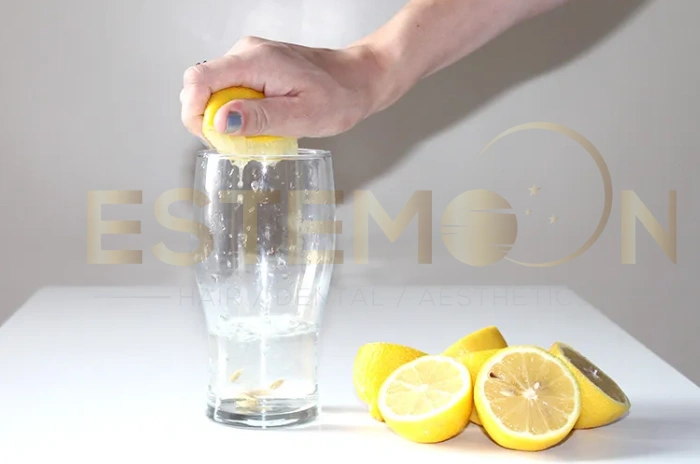
How Lemon Juice Compares to Store Bought Lighteners
DIY lemon hair lightener offers several advantages over commercial products, including cost-effectiveness, natural ingredients, and gentler processing. However, understanding the differences in effectiveness, speed, and results helps set realistic expectations for natural lightening methods.
Commercial hair lighteners typically contain hydrogen peroxide and ammonia, which provide faster and more dramatic results than citric acid. Professional products can lighten hair 2-4 levels in a single session, while lemon juice may only achieve 1/2 to 1 level of lightening over multiple treatments.
Effectiveness Comparison Chart
| Factor | Lemon Juice | Store-Bought Lighteners |
|---|---|---|
| Lightening Speed | 4-8 treatments needed | 1-2 treatments sufficient |
| Damage Level | Low to moderate | Moderate to high |
| Cost per Treatment | $2-5 | $15-50 |
| Color Results | Subtle, natural-looking | Dramatic, uniform |
| Processing Time | 1-3 hours per session | 20-45 minutes |
The lemon juice lightening time varies significantly based on hair type, desired results, and natural hair color. While commercial products work quickly, they often require professional application and carry higher risks of severe damage or chemical burns.
Advantages of Natural Citrus Lightening
Citrus for hair treatments provide additional benefits beyond lightening, including increased shine, reduced oil production, and natural conditioning properties. The vitamin C content in fresh lemons supports hair health and scalp circulation.
Natural methods allow for gradual lightening that appears more natural and sun-kissed compared to the often stark results of chemical bleaching. This gradual process also provides more control over the final result and allows for stopping the process if undesired effects occur.
The environmental impact of natural lightening methods is significantly lower than commercial products, which often contain harsh chemicals that require special disposal methods and contribute to water pollution.
How to Moisturize Hair After Lemon Juice Use
Post-treatment care is crucial for maintaining hair health after lemon juice and sun hair lightener applications. The acidic nature of citric acid can strip natural oils and moisture from hair strands, requiring immediate and ongoing hydration to prevent damage and breakage.
Hair damage from lemon juice typically manifests as dryness, brittleness, and increased porosity. Addressing these issues promptly with appropriate moisturizing treatments helps restore hair’s natural balance and prevents long-term damage.
Immediate Post-Treatment Care
Rinse hair thoroughly with cool water immediately after sun exposure to remove residual lemon juice and stop the lightening process. Follow with a gentle, sulfate-free shampoo to cleanse without further stripping natural oils.
Apply a deep conditioning treatment containing proteins and moisturizing agents such as keratin, argan oil, or shea butter. Leave the treatment on for 15-20 minutes before rinsing with cool water to seal the hair cuticle and lock in moisture.
Weekly Maintenance Routine
Implement a weekly deep conditioning routine using natural ingredients that complement the citrus treatment:
DIY Moisturizing Hair Mask:
- 2 tablespoons coconut oil
- 1 tablespoon honey
- 1/2 avocado (mashed)
- 1 egg yolk
Apply this mixture to damp hair, focusing on mid-lengths and ends. Cover with a shower cap and leave for 30 minutes before washing with gentle shampoo.
Preventing Brassy Hair from Lemon Juice
Orange or brassy tones can develop when lemon juice lightening reveals underlying warm pigments in hair. Combat brassiness with purple-tinted shampoos or natural alternatives like chamomile tea rinses for blonde hair.
Weekly apple cider vinegar rinses (1 part vinegar to 4 parts water) help balance hair pH after acidic lemon treatments while adding shine and reducing brassiness. This treatment also helps remove mineral buildup that can contribute to unwanted color tones.
Lemon Juice for Seborrheic Dermatitis What to Know
Lemon juice for seborrheic dermatitis requires careful consideration as this scalp condition involves inflammation, flaking, and sensitivity that may be aggravated by acidic treatments. While some people report benefits from citrus treatments for scalp health, others experience worsening symptoms.
The antifungal properties of lemon juice may help combat Malassezia yeast, which contributes to seborrheic dermatitis symptoms. However, the acidic nature can also irritate already inflamed skin, potentially causing increased redness, burning, or flaking.
Safe Application for Sensitive Scalps
If attempting lemon juice treatments with seborrheic dermatitis, significant dilution is essential. Use a ratio of 1 part lemon juice to 4 parts water, and avoid direct scalp contact by applying only to hair lengths.
Perform patch tests on unaffected skin areas before any scalp application. Monitor for increased itching, burning, or flaking that may indicate the treatment is unsuitable for your specific condition.
Alternative Natural Treatments
For those with seborrheic dermatitis seeking natural hair lightening, consider gentler alternatives such as chamomile tea rinses or honey treatments. These options provide mild lightening effects without the harsh acidity that may trigger scalp reactions.
Consult with dermatologists before combining any acidic treatments with seborrheic dermatitis management routines. Existing medications or treatments may interact negatively with citric acid applications.
FAQs About Hair Bleaching with Lemon Juice DIY Spray and Sun Guide
How does lemon juice lighten hair?
Lemon juice contains citric acid that breaks down melanin in hair when activated by UV rays from sunlight.
Can lemon juice damage your hair?
Yes, lemon juice can cause dryness, brittleness, and breakage if used improperly or too frequently without proper moisturizing care.
How to make a lemon juice hair spray?
Mix 1/2 cup fresh lemon juice with 1/4 cup distilled water in a spray bottle and apply evenly to damp hair.
How do I moisturize my hair afterwards?
Use deep conditioning treatments with natural oils, protein masks, and gentle sulfate-free shampoos to restore moisture and prevent damage.
Follow us on social media for updates, tips, and patient success stories:

